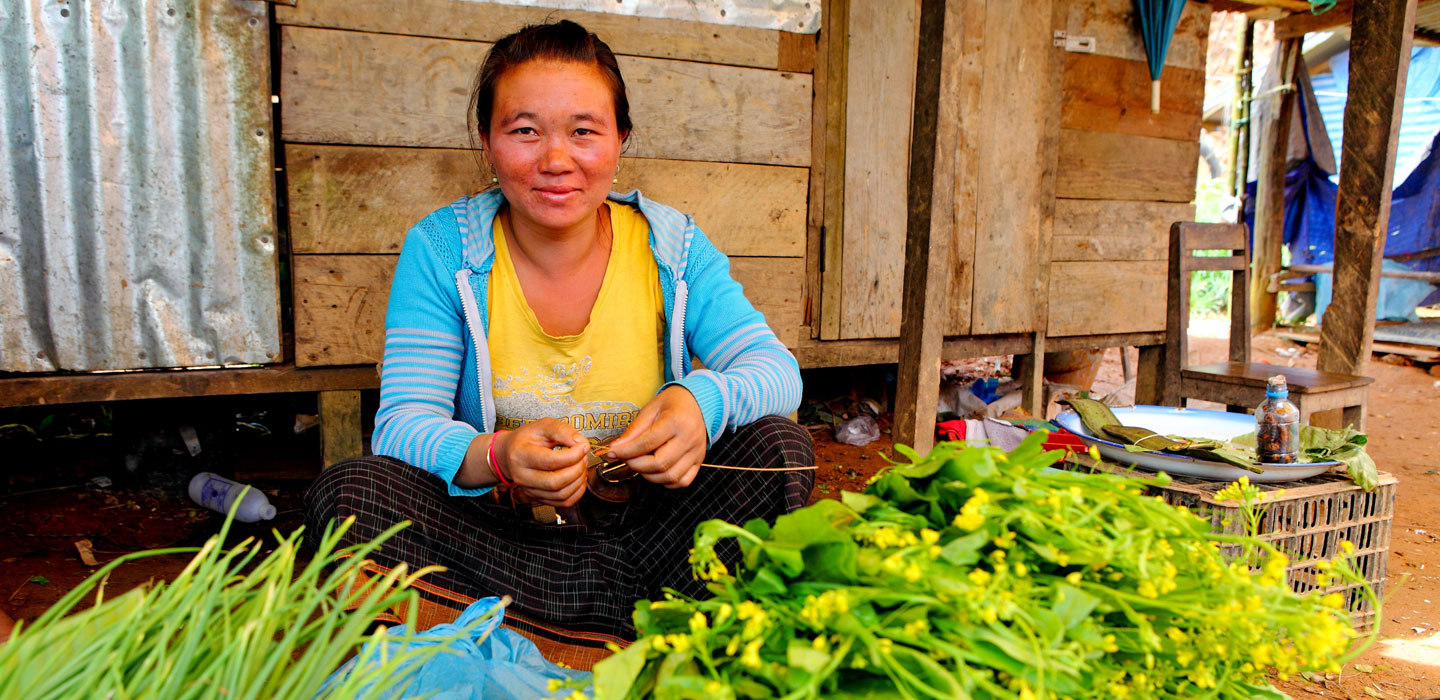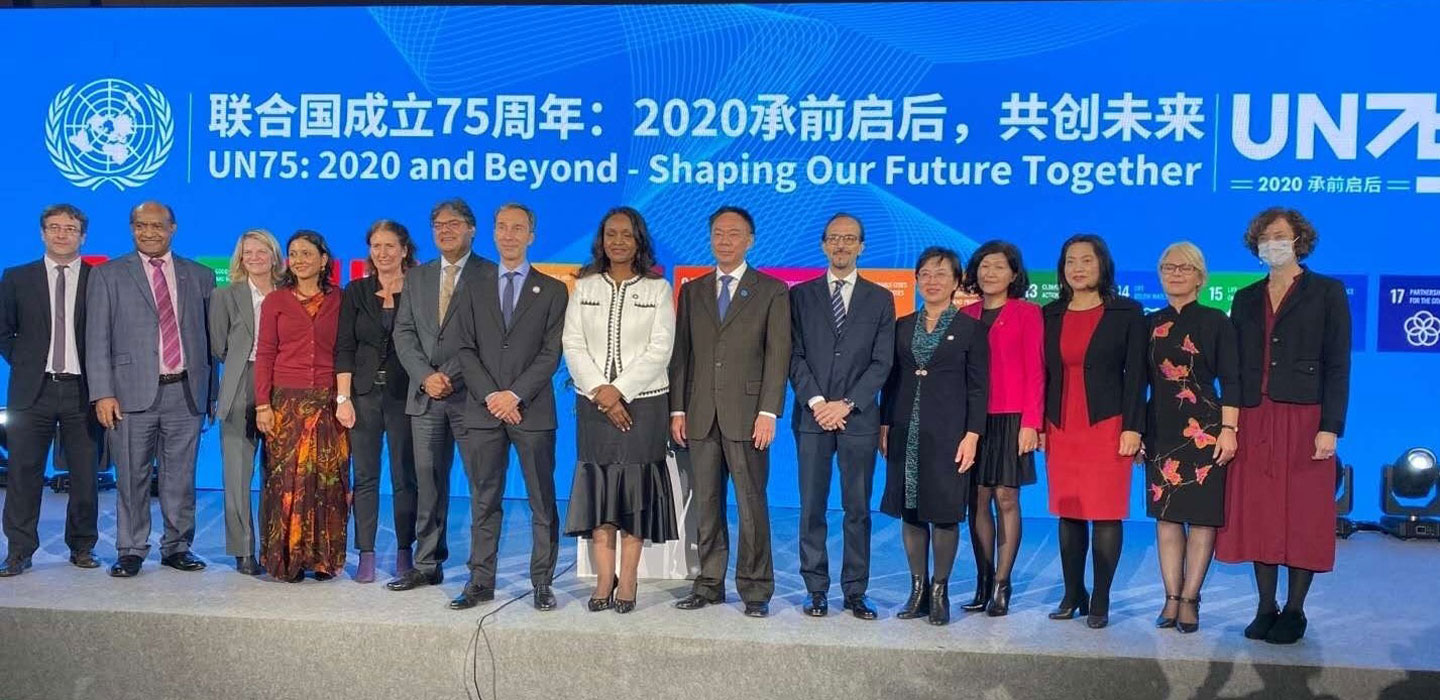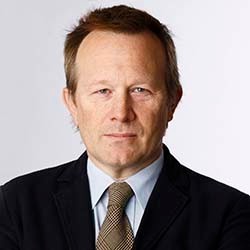Working closer as a UN family in country – a review of progress in implementing the UN reform agenda across Asia Pacific
IFAD Asset Request Portlet
Asset Publisher
Working closer as a UN family in country – a review of progress in implementing the UN reform agenda across Asia Pacific
By Nigel Brett

The adoption of General Assembly resolution 72/279 in May 2018, triggered a consortium of UN organizations to come together and rethink how the United Nations Development System (UNDS) can deliver more coherent, accountable and effective support to help countries achieve the 2030 Agenda. IFAD’s engagement in the associated UN reforms became a corporate priority and a management imperative. More than two years after the resolution, and with less than 10 years left to achieve the SDGs, what does progress look like on the ground across the Asia Pacific region?
New cooperation frameworks linked to national development plans: The essence of the UNDS reform is about the UN system repositioning itself to be agile and responsive to national development plans that are, in turn, linked to SDG delivery. IFAD country teams across Asia Pacific have sought to be fully engaged, together with UNCT members, in the preparation processes of new Common Country Assessments (CCAs) and new United Nations Sustainable Development Cooperation Frameworks (UNSDCFs). These are proceeding along different timelines, but some are already completed. In the case of Afghanistan, Bangladesh, China, Indonesia, Philippines and Viet Nam, country teams have been fully involved in supporting the development of new CCAs or updating existing CCAs. This has enabled issues related to rural poverty, agriculture and food security, including the impact of COVID-19 on food systems, to feature prominently. In the case of Cambodia, Indonesia, and China, the IFAD country teams participated actively in the preparation of the new UNSDCF’s and along with other agencies signed the final document. Additional UNSDCF’s are expected to be rolled out and signed in 2021. While progress is good, there are still challenges. In many countries across the region, IFAD does not have a country office, and in such cases, participation in CCA’s and UNSDCF processes can be challenging. And even in countries with the largest established offices, staffing levels are a fraction of those in other UN agencies, and this often forces trade-offs in terms of where staff can devote their time.
New Country Strategies: Another very important element of the reform process is the alignment of new country strategies of individual UN agencies with the new UNSDCFs. In the case of IFAD this has meant that all new COSOPs under design are subject to a thorough consultation process with the UNCT, and that the final results matrix in the COSOP has clear and direct alignment with the objectives and targets in the UNSDCFs. A good example of this is in Nepal, where the new draft COSOP underwent a consultation with the UNCT in Kathmandu in November 2020, followed by a second consultation with bi-lateral agencies active in the country, including Finland, Germany, Japan, Switzerland and the United States. Consultations such as these have enabled identification of new opportunities for partnership, including with Rome Based Agencies (RBAs). In 2021, the new COSOPs for Bangladesh, Cambodia, Myanmar and Pakistan will all go through similar consultative processes to ensure full alignment and synergy at country level. All new COSOPs will refer to UNSDCF objectives in their results frameworks, and the respective UN Resident Coordinators will have an opportunity to review the final COSOPs before they go to the Executive Board.
Joint country strategies: A very interesting development in the context of new country strategies has been the piloting of joint RBA country strategies. In the case of Indonesia, a tri-partite RBA country strategy was finalized in 2020 and will guide joint programming over the coming years. It focuses on promoting sustainable food systems and is fully aligned with the new UNSDCF. An initial focus will be a joint project in Nusa Tenggara Timur where an on-going IFAD financed project will be enhanced with innovative technologies and training in food security and nutrition from FAO and WFP. In other countries such as Cambodia, IFAD is engaging with WFP and FAO in the development of tri-partite joint programming frameworks.

Joint programmes: IFAD has made good progress across the Asia Pacific region in undertaking joint programming in support of UNCT priorities. In many cases including in Afghanistan, Bangladesh, Kiribati, Solomon Islands, and India, FAO is providing technical support in the design and implementation of IFAD-financed projects. IFAD has also partnered with FAO on developing a new GAFSP proposal covering four small islands in the Pacific. WFP is also a strong partner in a number of joint programmes. In Bangladesh, WFP is supporting IFAD investment projects by preparing poverty and nutrition mapping. In Sri Lanka, a joint IFAD/FAO/WFP initiative is underway that will enable a joint input to the Food Systems Summit in 2021. In Laos, a tri-partite IFAD/FAO/WFP joint project, financed by GAFSP, is focused on supporting nutrition sensitive agricultural investments, while in Nepal, an FAO/IFAD/WFP/UNWomen joint programme is focusing on rural women’s empowerment. Partnerships with UNWomen, focused on promotion of women’s empowerment are also happening in China. Looking forward, as UNSDCFs begin to role out, and with closer engagement with UNCTs, joint initiatives such as these will no doubt increase in number at the country level.
New UN country teams (UNCTs): As of 1 January 2019, all UN Resident Coordinators (RCs) took over their new functions as the highest-ranking development representatives of the UN system, and chair a revamped new generation of UNCTs. The new generation of UNCTs are demand-driven, with enhanced skill-sets tailored to meet specific development priorities and needs of countries. The primary role of the RC is to deliver a collective response to national needs and ensure system-wide coherence and accountability on the ground. IFAD recognizes the impartial, empowered and strengthened RC function as key to supporting in-country effectiveness. As a result of IFAD’s push to decentralize staff to the region over the past three years, IFAD is now much better able to participate in UNCT meetings and associated sub-groups covering the agriculture and rural sector. Good examples of this strong engagement come from China, India, Indonesia, Cambodia and Viet Nam. This has even resulted in IFAD staff co-chairing sub-groups. For example in Cambodia, IFAD and FAO jointly co-chair the technical working group on agriculture. Nevertheless, with skeleton ICO staffing in many cases, and with the imperatives to supervise multiple on-going projects, country teams inevitably face difficult trade-offs on participation. For example in the case of Nepal, Cambodia, and Pakistan, IFAD has only one officer present in the country. In such cases, staff can only afford to participate in the most strategic and important UNCT meetings. IFAD also faces unique challenges in countries without an IFAD ICO, for example Afghanistan, Bhutan, Lao PDR, Maldives, Myanmar, PNG and Sri Lanka. While there are some good practices emerging in these cases, for example regular participation through teleconference in the case of Afghanistan and Bhutan, in other cases it has often proven difficult to be actively involved in UNCT meetings. A possible long-term solution to such situations could be for either of the other RBAs present in the country to represent IFAD at the meetings.
UNCTs and COVID-19: A first major stress test of the coordination potential of UNCTs happened in early 2020 with the outbreak of the pandemic. With increased IFAD staffing in-country, and with much stronger engagement in UNCTs, IFAD has been able to participate actively in UNCT-coordinated COVID-19 analytical work at the country level. In China, India, Philippines, and Laos, IFAD co-financed UNCT/RBA assessments on the impact of COVID-19 on food systems. In the case of the Pacific, IFAD led the analytical work on the impact of the virus outbreak on food security and nutrition as part of the UN Socio-Economic Assessment, in close collaboration with RBA partners. IFAD has also been able to ensure that COVID-19 emergency projects financed under IFAD’s own Rural Poor Stimulus Facility (RPSF) are fully aligned with UNCT-coordinated response plans at the country level. In two cases, Viet Nam and in the Pacific, IFAD has succeeded in obtaining funding from the UN COVID-19 Response and Recovery Multi-Partner Trust Fund (MPTF). In the case of Viet Nam, an IFAD/UNIDO/UN Women joint project proposal under the MPTF will support women and youth empowerment in COVID-19-proofed agricultural value chains. In the case of the Pacific, an ILO/UNESCO/UNDP/IFAD joint project proposal under the MPTF will support COVID-19 recovery initiatives in Fiji, Palau, Tonga and Vanuatu.
Management Accountability Framework (MAF): The MAF is a foundational piece in the reinvigoration of the Resident Coordinator system as it provides a clear and unambiguous framework for management and accountability within UNCTs. The MAF operationalizes a dual accountability system that lies at the heart of the new RC system, involving both UN entities and RCs. UNCT members will have at least one performance indicator linked to UNCT results in their performance assessments, and the RC will have a formal role in providing inputs to the assessment process. In this regard, in December 2020, for the very first time, RC’s will be involved in the performance appraisal process for IFAD Country Directors across Asia Pacific, and vice versa.
In conclusion, looking across the region, and in spite of the relatively light footprint of IFAD’s ICOs, and the challenges brought by the pandemic, much has been achieved in support of the UN reform agenda. A new generation of UNSDCFs are being rolled-out. New tri-partite RBA initiatives are emerging. There are many examples of joint programmes. And importantly IFAD staff are much more visible and engaged in UN reform efforts. Looking towards IFAD12, with the uptake of “Decentralization 2.0”, IFAD will move to having 45 per cent of its staff located in the field. This will mean more capacity at the country level, and will inevitably further improve IFAD’s ability to partner with the UN family in support of national priorities focused on the SDGs and beyond.
Publication date: 03 December 2020